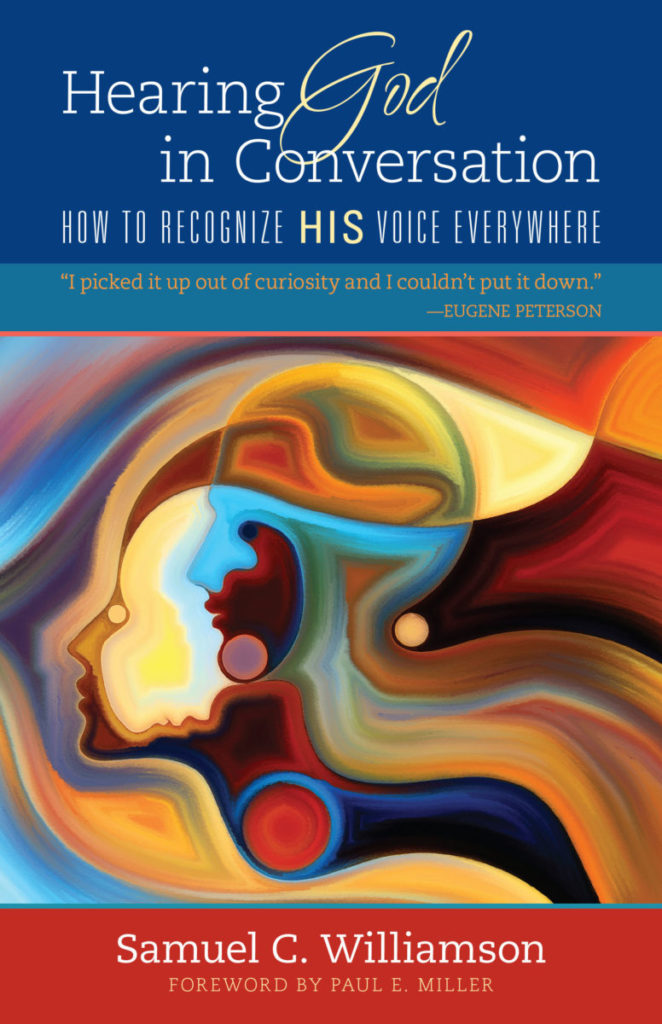When I was growing up, my dad taught me to sail our small Sunfish sailboat. We took month-long summer vacations. We always camped on lakes, so we could challenge the wind every day.

I probably sailed with my dad for a hundred hours before I took the boat out on my own. My dad would have me handle either the sail or the rudder. Of our many hours sailing together, I’ll bet his actual instruction time totaled an hour, two at the most.
He might say, “Pull in the sail a bit,” or, “Turn a little more to the left.” (Yeah, I know, starboard and port, but my dad didn’t care much about terminology.) Those short comments took mere moments to say, and Dad didn’t make them often. Mostly we just sailed together for hours and hours. And bit by bit, gust by gust, wave by wave, I learned to sail.
Instead of lecturing, Dad mostly just chatted, and the difference is huge. Constant lectures sink relationships. Conversations buoy them up.
Dad would ask what I wanted to be when I grew up. I’d say, “A pirate!” (of course) and he’d heartily agree (“Yo, ho, ho!”). He’d ask why I had yelled at my sister, and I’d ask why he got angry at my mom. We’d talk about which books we were reading, what sermons he was preparing, and what it would be like to sail across the ocean.
Our relationship with God can be like that. Conversational.
Would We Want It Any Other Way?
When we imagine “hearing God,” we mostly picture God telling us what to do. We ask for guidance, but it means we’re asking for lectures: Do this and don’t do that. God wants conversations with us far more than he wants to lecture.
Jesus once said, “If you earthly fathers, who are evil, know how to give good gifts to your kids, how much more will your heavenly Father give good things to those who ask him!” (Matt. 7:11).
Think of your fondest memories of your fathers. How many of those memories are the times your dad lectured? My earthly father made boatloads of mistakes, but he also did tons of things right. My favorite memories of dad are discussions around the table, phone calls, and sailing.
He did give advice, and occasionally (though rarely) I even asked for advice; but he always loved to talk with me. About life. About ANYTHING: movies, friends, spiritual quandaries, and jokes.
If our best memories of our earthly fathers are conversations not sermons, why do we think our heavenly Father (who is better than the best earthly father) wants mostly to lecture? Would we want it any other way?
We most frequently seek God’s voice during times of crisis. “I’m in trouble; I need direction!” The thing is, until we have learned to recognize his quiet voice in the humdrum of life, what chance do we have of distinguishing his voice in the maelstrom of crisis?
Let’s learn to sail our boats in a gentle breeze before we raise our sails in a hurricane.
Besides, the Best Guidance Comes Through Conversation
My dad did teach me sailing, but I never felt our sailing adventures were classroom instructions. Directions did come (“Let out the sail a bit, I see a squall coming”), but they were gusts in the winds of conversations, punctuation marks in the midst of chapters.
My ability to sail grew through persistent conversations, sometimes boring sometimes exciting. My dad and I went through life on the seas together. It was in those communal adventures that he taught me to navigate. He never once used a whiteboard, flipchart, or PowerPoint to abstractly teach me seamanship. He taught me through a shared daily life on the waves.
On our trips together, I’d make mistakes (as would he), and the boat would capsize. We’d right it together, we’d laugh (most of the time), and we’d drag our soaking wet bodies back onboard, to match our wits against the wind and waves once more.
Through it all, I learned to sail, though his guidance was mostly unnoticed. Within a year—at eleven years of age—I was sailing the Great Lakes alone, beyond sight of land, amidst the wake of freighters, capsizing, righting, laughing, and testing my strength and courage.
Even now, when I sail as an adult, his conversational guidance is with me when I face a squall.
How Do We Have a Conversational Relationship With God?
It’s perfectly normal to talk about “normal” stuff with our friends; why not with God? He isn’t less of a person, he’s more of a person. He isn’t less interested, he’s more interested.
And he has a better attention span.
I love my daily prayer time, but my best conversations with God take place throughout the day, when driving home from an appointment or waiting in line at the supermarket. I say to God,
- Father: my last lunch meeting didn’t go well. I said something more harshly than I meant to. Why did I say it that way? What is going on in me to explode like that?
- Father: I’m tired, like I have to much to do, too little time to do it. What will it take for me to let go of my life? What does it mean to be satisfied in you alone?
- God, I felt alive when I gave that talk on friendship. How can I help others find friends? How can I walk in a friendship with you?
The best relationships with God are conversational. In the Garden of Eden, we know very little of Adam and Eve’s relationship with God. Except this: he walked with them in the cool of the evening.
Which is a Hebrew metaphor for God having a conversation with friends.
Sam
++++++++++++
This article is an excerpt from my book Hearing God in Conversation. I wrote it with the intention of helping believers develop an intimate, conversational relationship with their Heavenly Father.
Eugene Peterson said this:
I picked it up, and I couldn’t put it down. I read it straight through.
Gary Wilkerson (pastor, author, and son of David Wilkerson) said this:
A key longing in every human heart is to connect with God, to actually hear his voice. Sam Williamson has written a remarkable book that teaches both how to hear God’s voice in Scripture, and then to hear his voice in every avenue of life. It’s filled with humor, insight, practical tips, and sound theology. I can’t recommend a better guide than Hearing God in Conversation.


 The Impact of Intimate Theology
The Impact of Intimate Theology
Great article, Sam, thanks! It is such an important topic and you said it beautifully.
Hi Steve,
Thanks! The thing that has worked best for me is to begin “praying” my thoughts to God instead of just “thinking” them.
My mind is always filled with stuff: concerns about politics or family, joys of little successes (and sadness about little–or big–failures), and I think about them.
A few years ago, I just started praying them. Instead of thinking, “I’m so angry at certain political decisions,” I say, “Father, I am so angry at certain political decisions.” The same sentence but a prayer not just an impersonal thought.
It took some time to change habits, but I’ve found great, a way I start just talking with God. And then I find my thoughts being more formed. Like I’ll say to God, “What should I do about it? How should I respond?” And just those added thoughts are almost questions God puts in my mind.
The first interactions we know of between God and humanity are his “walking in the cool of the Garden.” God loves conversations with his beloved children.
Sam
Hi Sam
Again , what a wonderful story and deeply thought provoking. I was drawn in by your story of sailing the Sunfish with your Dad.
As a counselor at a Riding Camp ( not necessarily Christian ) I worked on building a Sunfish with another counselor. I, like you, had never sailed before. It was an exhilarating, and yet “well contained” experience.
Storms at sea make me think of the Hebrews in Deuteronomy 19. They knew they were loved by God, yet when they heard his voice in Thunder and Lightening, they said to Moses, “This God of yours is too terrible for us. You talk to Him instead and then tell us what He wants from us.”
Theirs was not “a well contained experience”. God didn’t “pull any punches” with them. He thought they could “handle speaking with Him conversationally “ But they did not understand His language, and they collapsed into fear.
This is, I think, the issue for many believers today. We are afraid to hear from The Lord because of what fault He might find in us. We mistakenly assume that we are under the same Old Covenant of Blessings and Cursings as the ancient Hebrews. We think that the burden is all on us to “make good for Him.”
But, like novice sailors with their earthly fathers, we cannot do the right things often enough to “earn our salvation and avoid a shipwreck”.
This is why Jesus said, on the Cross, “It is finished.” Our salvation is no longer “up to us”, instead it is His gift of Grace and His eternal blessings for us. These blessIngs are , of course, “unearned”, t but our Heavenly Father is a generous giver, who is more than capable of shielding us from life’s storms.
Like with your Dad, no lectures, nor laws, just pleasant (sometimes stormy) conversation.
The question we need to ask ourselves is, “Can I be O.K. with that?
God is raining His blessings upon us… and He says it’s O.K. when we play in the puddles. Even if it gets noisy, He is still there waiting for us to “strike up a conversation”… Amen?
Pastor Jack